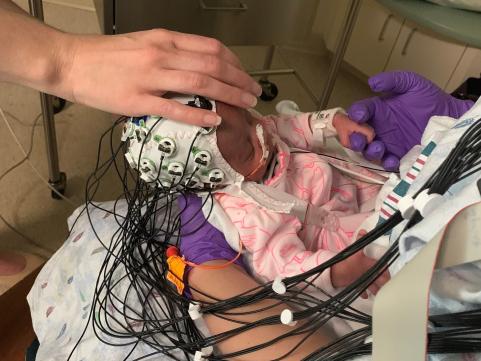Neurodevelopment
Deciphering the trajectory of brain development
Content

The neurodevelopment research program at UVA seeks to understand the prenatal, perinatal, and neonatal environmental factors that impact brain development, as a first step toward developing predictive models and instituting therapies that prevent or mitigate brain dysfunction. Researchers in labs across Grounds are studying neural development at the cellular level and in animal models. Meanwhile, teams of researchers are also performing clinical research to explore markers of intellectual and developmental disorders. Researchers in the classroom seek to uncover the best interventions and educational models to help these students excel. The Brain Institute supports teams of researchers who are performing this groundbreaking work, in order to accelerate discoveries from bench-to-bedside-to-classroom through seed funding, trainees, and programmatic support. The Brain Institute also organizes events and complex proposal development related to neurodevelopment.
UVA is also an internationally reputed center for Neonatal Intensive Care Unit (NICU) vital sign data analysis. We derive this reputation from improvement in neonatal care that has resulted from our successes in mining the largest curated NICU vital sign repository in the world. The Brain Institute and University investigators are collaborating with the NICU, the Baby Brain Initiative (BaBI) and investigators in the School of Education and Human Development on a study tracking babies who are born prematurely – a risk factor for autism. Predicting which children will develop autism or other neurodevelopmental conditions will enable researchers to better understand brain development and predictors of school readiness, and may allow for targeted intervention at earlier intervals than currently established treatment.